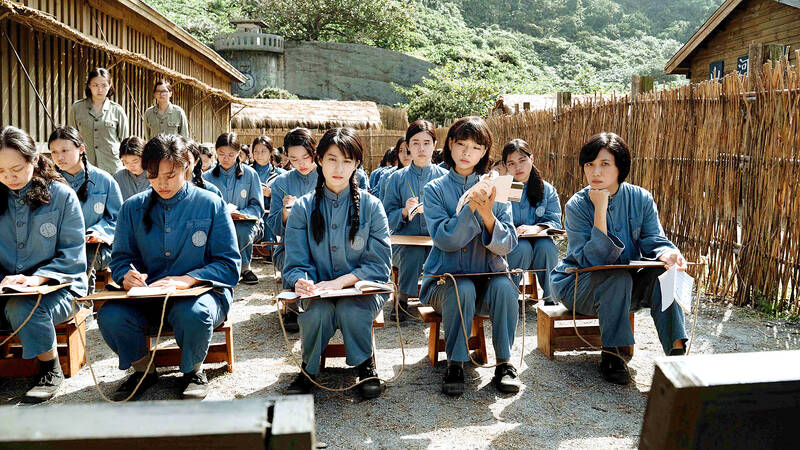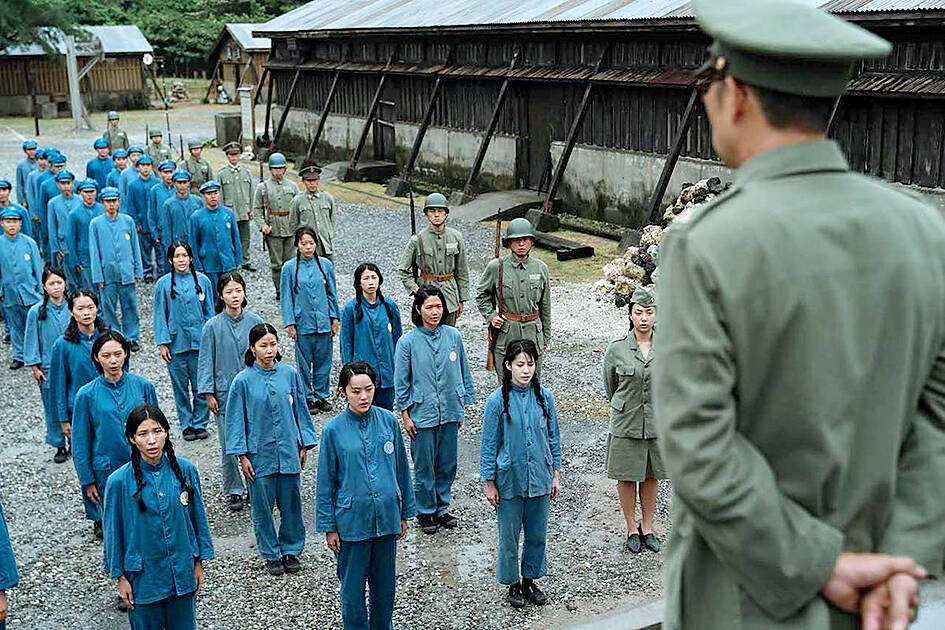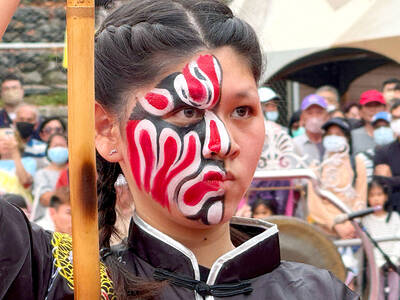Having read the book featuring the true stories Untold Herstory (流麻溝十五號) draws from, it was interesting to see how director Zero Chou (周美玲) took bits and pieces of these experiences and weaved them into a dramatic narrative.
While there’s been much effort in recent decades to highlight the long-suppressed history of the thousands of political prisoners once confined on Green Island (then-known as Bonfire Island, 火燒島), an often-forgotten part is the nearly 100 female prisoners who toiled there. Mostly imprisoned in gated barracks, they were only let out to attend “re-education” classes and perform hard labor.
Many of them were still students, suddenly nabbed and dragged away during the height of White Terror for innocuous offenses such as reading banned books, saying something that may be interpreted as pro-communist or simply knowing the wrong people. Some were reported by people they had offended as a form of revenge. Records show that 26 women were executed for their “crimes,” but the actual number is likely higher.

Photo courtesy of Activator Marketing Co
It was taboo to discuss the issue for decades, especially as those released still faced social stigma and government surveillance. Many refused to talk about it even after the lifting of martial law. Fortunately, five of them opened up to Tsao Chin-jung (曹欽榮) for the book, providing an invaluable glimpse of the horrors and hardships they witnessed and endured. Tsao, who has been researching the White Terror for decades and led the planning for the Green Island White Terror Memorial Park and other projects, served as consultant to the film.
Shot delicately in muted, cool tones, the attention to detail in the film is impressive, from the painstakingly reconstructed camps and barracks, to the costuming, to the varying, heavy accents of the prisoners and guards. The Chinese Nationalist Party (KMT) guards came here from all across China, while the Taiwanese were just beginning to learn Mandarin — this, in addition to the terminology they use, is handled very well.
Three fictional protagonists were created for the story: the young and innocent Kyoko (Yu Pei-jen, 余佩真) who sketches everything she sees, the wistful dancer Chen Ping (Cindy Lien, 連俞涵), who catches the eye of the top commander and Yen Shui-hsia (Herb Hsu, 徐麗雯), a strong-willed Christian mother and nurse who refuses to bow down to authorities. Chen is one of hundreds of students from China’s Shandong Province accused of sedition in the 713 Penghu Incident, and it’s important to highlight that those from China (“mainlanders”) were also subject to White Terror abuse.

Photo courtesy of Activator Marketing Co
One can roughly tell which women from the book they’re based on, but they’re distinct enough and draw from a multitude of accounts. There were never more than 100 women incarcerated on Green Island at a time, but the prisoners’ assigned numbers in the film were all in the 100s. Chou says in an interview that this is done purposely to avoid revealing the names of the political prisoners.
The central event of the film is the “Save the Nation with Good Conscience Movement” (一人一事良心救國運動), which included pledges “volunteering” to tattoo anti-communist slogans on their body. The mass refusal to participate eventually culminated in the “re-rebellion” case (再叛亂), where 14 people were executed.
As a mainstream feature film, the overall story and events are a bit melodramatic, but that’s what pleases movie-goers and helps bring more attention to this forgotten history. The historical elements are presented well and are smoothly incorporated into the narrative, and it helps that they come from detailed oral accounts that include the emotions the subjects felt during certain events. The general political atmosphere of the times is also reflected through the newspaper clippings the prisoners secretly save as well as conversations between those who run the prison.
Despite the state’s attempts to dehumanize and brainwash the prisoners, the film emphasizes their interactions, camaraderie and humanity as they each try to retain their sanity and dignity in different ways.
Overall, it’s a powerful statement and ode to these women and their will to endure the most difficult situations. Two of the women in the book spent more than 12 years locked up on bogus charges, but there was nothing they could do but carry on with life after getting out. If you can read Chinese, definitely pick up the book after watching the film.

The People’s Republic of China (PRC) last week offered us a glimpse of the violence it plans against Taiwan, with two days of blockade drills conducted around the nation and live-fire exercises not far away in the East China Sea. The PRC said it had practiced hitting “simulated targets of key ports and energy facilities.” Taiwan confirmed on Thursday that PRC Coast Guard ships were directed by the its Eastern Theater Command, meaning that they are assumed to be military assets in a confrontation. Because of this, the number of assets available to the PRC navy is far, far bigger

The 1990s were a turbulent time for the Chinese Nationalist Party’s (KMT) patronage factions. For a look at how they formed, check out the March 2 “Deep Dives.” In the boom years of the 1980s and 1990s the factions amassed fortunes from corruption, access to the levers of local government and prime access to property. They also moved into industries like construction and the gravel business, devastating river ecosystems while the governments they controlled looked the other way. By this period, the factions had largely carved out geographical feifdoms in the local jurisdictions the national KMT restrained them to. For example,

The remains of this Japanese-era trail designed to protect the camphor industry make for a scenic day-hike, a fascinating overnight hike or a challenging multi-day adventure Maolin District (茂林) in Kaohsiung is well known for beautiful roadside scenery, waterfalls, the annual butterfly migration and indigenous culture. A lesser known but worthwhile destination here lies along the very top of the valley: the Liugui Security Path (六龜警備道). This relic of the Japanese era once isolated the Maolin valley from the outside world but now serves to draw tourists in. The path originally ran for about 50km, but not all of this trail is still easily walkable. The nicest section for a simple day hike is the heavily trafficked southern section above Maolin and Wanshan (萬山) villages. Remains of

Shunxian Temple (順賢宮) is luxurious. Massive, exquisitely ornamented, in pristine condition and yet varnished by the passing of time. General manager Huang Wen-jeng (黃文正) points to a ceiling in a little anteroom: a splendid painting of a tiger stares at us from above. Wherever you walk, his eyes seem riveted on you. “When you pray or when you tribute money, he is still there, looking at you,” he says. But the tiger isn’t threatening — indeed, it’s there to protect locals. Not that they may need it because Neimen District (內門) in Kaohsiung has a martial tradition dating back centuries. On